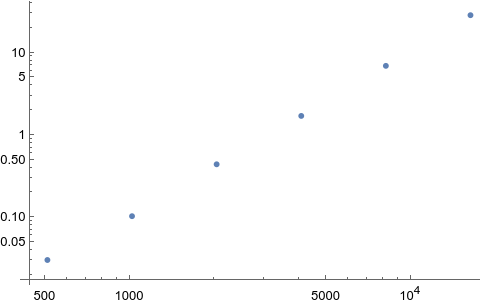I suspect you only want to optimize the last line, i.e. I haven't bothered speeding up s. In what follows I'll use the first 1000 x 1000 submatrix to show some comparative timings.
Your current implementation:
With[{MicroElements = s},
Table[If[Abs[Sum[(MicroElements[[i]] - MicroElements[[j]])[[d]], {d, 1,16}]] == 2, 1, 0],
{i, 1, 1000}, {j, 1, 1000}]]; // AbsoluteTiming
(*{5.44532,Null}*)
The main reason your implementation is slow is the use of Sum, you should instead use Total since you're trying to sum over the entire list.
With[{MicroElements = s},
Table[If[Abs[Total[(MicroElements[[i]] - MicroElements[[j]])]] == 2, 1,0],
{i, 1, 1000}, {j, 1, 1000}]]; // AbsoluteTiming
(*{0.681037, Null}*)
We can go a bit further by compiling the function:
cf = Compile[{{x, _Integer, 1}, {y, _Integer, 1}},
Boole[Abs[Total[x - y]] == 2], CompilationTarget -> "C",
RuntimeOptions -> "Speed", RuntimeAttributes -> {Listable},
Parallelization -> True]
This seems to help very slightly, but can be used with DistanceMatrix and DistanceFunction to give fairly clean code:
AbsoluteTiming[DistanceMatrix[s[[;;1000]], s[[;;1000]], DistanceFunction -> cf];]
(*{0.469302,Null}*)
Since we specified Listable in our compiled function above, we could also consider using the following:
AbsoluteTiming[Map[cf[s[[;; 1000]], #] &, s[[;; 1000]]];]
(*{0.160225,Null}*)
Since we came this far, we might as-well compile all the way:
cf2 = Compile[{{mat, _Integer, 2}},
Table[Boole[Abs[Total[i - j]] == 2], {i, mat}, {j, mat}],
CompilationTarget -> "C", RuntimeOptions -> "Speed"]
cf2[s[[;;1000]]];//AbsoluteTiming
(*{0.105187,Null}*)
As for the actual calculation, the methods above appear to exhaust the memory on my machine (32768 x 32768 is a large array!), but some simple scaling suggests it'll take ~2 mins to complete
With[{timings = {2^#, First[AbsoluteTiming[cf2[s[[;; 2^#]]];]]} & /@ Range[9, 14]},
Echo[ListLogLogPlot[timings]];
2^(Fit[Log[2, timings], {1, x}, x] /. x -> Range[9, 15])
]
(*{0.0275781, 0.109413, 0.434082, 1.72217, 6.83248, 27.107, 107.544}*)

Finally, note that your matrix is actually symmetric - so you might even consider using Subsets to only compute the upper-triangular part of the matrix, as demonstrated here.


Abs[Sum[(MicroElements[[i]]- MicroElements[[j]])[[d]], {d, 1, 16}]] == 2and notSum[Abs[MicroElements[[i, d]] - MicroElements[[j, d]]], {d, 1, 16}] == 2? $\endgroup$